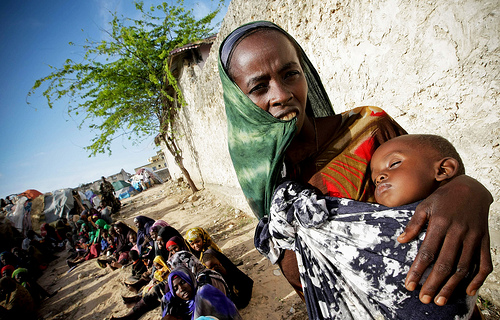
|
|
The Unfinished Cairo Agenda: Sexual and Reproductive Rights and Health for All
The international community faces a historic opportunity. Nearly 20 years ago, in 1994, 179 nations committed to protect the reproductive health and rights of women and girls at the landmark UN International Conference on Population and Development (ICPD) in Cairo. Twenty years later, a major UN review of progress toward those commitments gives us the chance to ask, "Has life really changed for women and girls?"
full article |

|
|
Has the LGBT Movement Failed in Uganda?
The author of this opinion article argues that rather than continuing to operate on an exclusive basis, the LGBT movement in Uganda should strive to nurture a multivariate movement for social justice, creating a multi-normative society for their safety and the peaceful coexistence of future generations. full article |

|
|
Speaking Out Against Child Marriage: “We Can End Child Marriage, and We Can End it in a Generation”
Around the world today, approximately 400 million women were married as children. This practice is particularly prevalent in certain parts of Africa. Child marriage has been missing from international development agendas. The time is ripe for that to change. full article |
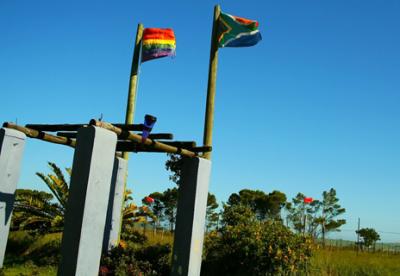
|
|
Protecting Sexual Diversity
A central task of the human rights movement has always been to challenge traditional and even sincerely held attitudes and customs when they entail the direct infliction of harm, suffering or discrimination upon others. And although many different minorities have benefited, this protection has not been easily extended to sexual minorities.
full article |

|
|
Homosexuality and the Great African Identity Heist
What does it mean to be an African? What is traditional African culture? Does it really condemn homosexuality, though it exists throughout Africa? And if it doesn’t, why are certain individuals and institutions clamouring for legislation against homosexuality? full article |
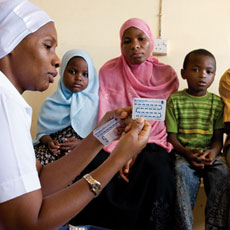
|
|
215 Million Women Still Have Unmet Need For Family Planning
In 1994, the International Conference on Population and Development in Cairo, Egypt, recognized reproductive health and family planning as fundamental human rights. Delegates committed to making voluntary family planning services universally available by 2015. Now just three years from that deadline, at least 215 million women want to prevent or delay pregnancy but are not using effective contraception. full article |

|
|
Aid, Resistance and Queer Power
LGBTIQ Africans are currently at the crux of an ever-increasing conservative (dare I say fascist) assault perpetuated primarily by the ruling elites in collusion, and often financed by, global right wing forces using the apparatus of the state and institutions such as the Church. full article |

|
|
What Way Forward For African Protocol For Women's Rights?
Ending gender-based violence will mean changing cultural concepts about masculinity. This includes recognition of the importance of active engagement of men and women at all levels, whether they are policy makers, parents, spouses or young boys and girls. full article |
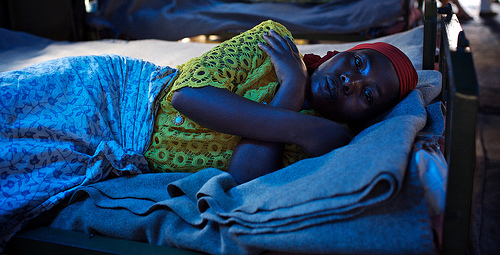
|
|
Why the Africa UNiTE Campaign?
The Africa UNiTE Campaign to End Violence Against Women and Girls aims to create a favorable and supportive environment for governments, in partnership with civil society experts, to be able to fulfill existing policy commitments. full article |

|
|
Peers, Porn and Boys: Communication and Learning of Sexuality in South Africa
Listening to young boys talk about sex and sexuality raises the interesting question of how and where they obtain their information. While many studies have noted that peers are a primary source of information on sex and commented on the dangers of this in terms of communicating incorrect information, there is also concern about the lack of information about sex or the appropriate source of information about, which may generate unhealthy outcomes. full article |
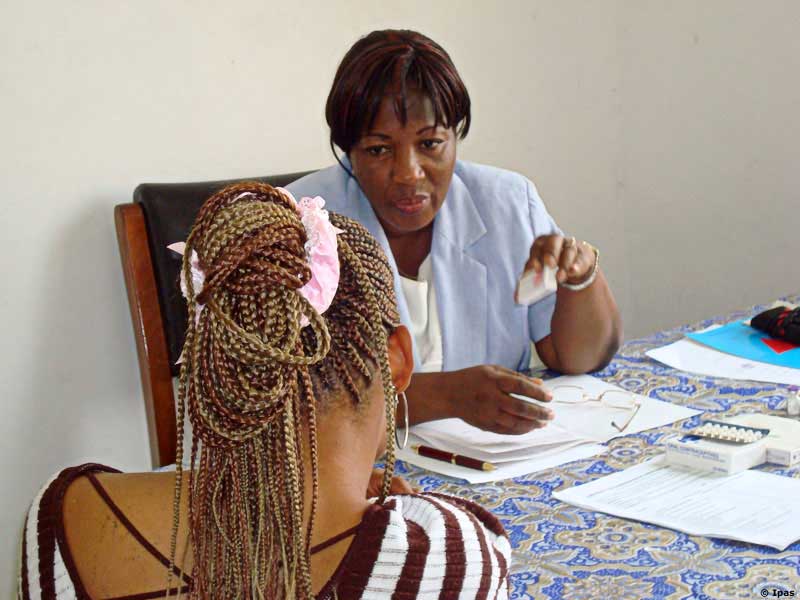
|
|
Institutionalized Stigma in Ghana
Abortion has been legal in Ghana under a wide range of circumstances - including to protect a woman's mental health - since 1985, making it one of the most progressive laws in Sub-Saharan Africa. Yet unsafe abortion still contributes to nearly one-third of maternal deaths. Access is chronically denied, and knowledge of the abortion law among women and health-care providers alike is scant. In Ghana, the issue of abortion is taboo. In the silence surrounding it, misinformation and stigma thrive. full article |

|
|
A Pastor's Daughter
Emily's nightmare began in February 2011 when her father, who was at the time undertaking a forty day fast, told her that he had seen in a vision, a revelation that his daughter had been fornicating and that she had fallen pregnant. Emily was quite shocked at that statement by her father and denied his allegations. Surprisingly he approached her the following day, insisting he'd had the same revelation again. He then dragged her to the University Teaching Hospital, Zambia's largest hospital, for a pregnancy test. full article |

|
|
Nigeria: Let The Debate on Reproductive Health Continue
In the past couple of years, there has been increased media attention in concerning reproductive health and rights in general and abortion in particular. Prior to this development, media reports on issues concerning reproductive health, especially, abortion were mainly sensational which contributed to the stigmatization of women who terminated pregnancies. full article |

|
|
Zimbabwe: The Slang of Sexual Networks
Risky sexual behaviour has a language of its own on the University of Zimbabwe's (UZ) campus in the capital, Harare. When female students arrive, they join an informal sorority known as the "university spinster association", or USA, while their male counterparts are inducted into the "university bachelor association", or UBA. full article |
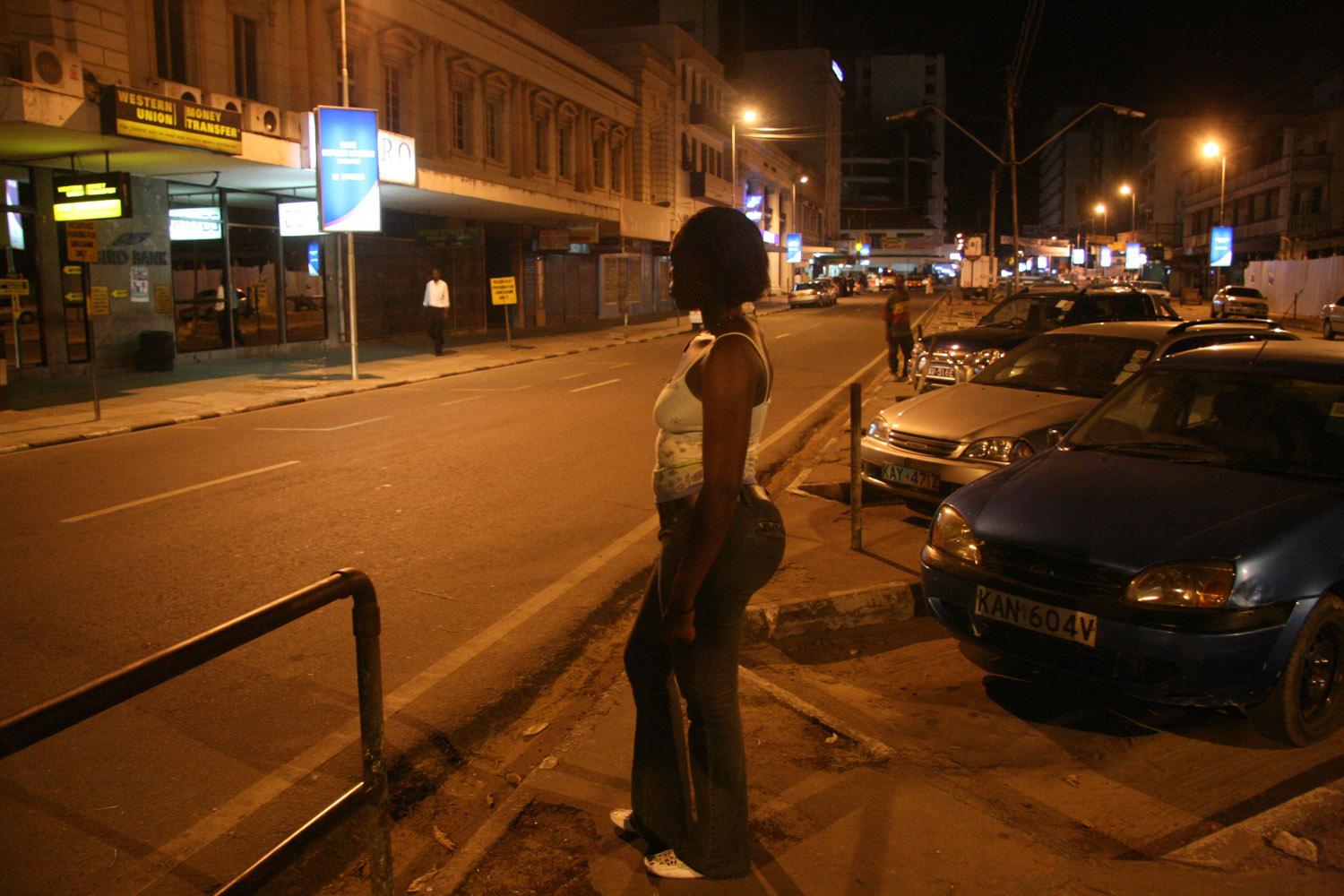
|
|
Benin-Nigeria: Learning English to Enter the Sex Industry
Many young people in French-speaking Benin are learning English to adapt to globalization, but some young women have another goal: to enter the thriving sex industry in neighboring Nigeria , where the market is considered full article lucrative. full article |
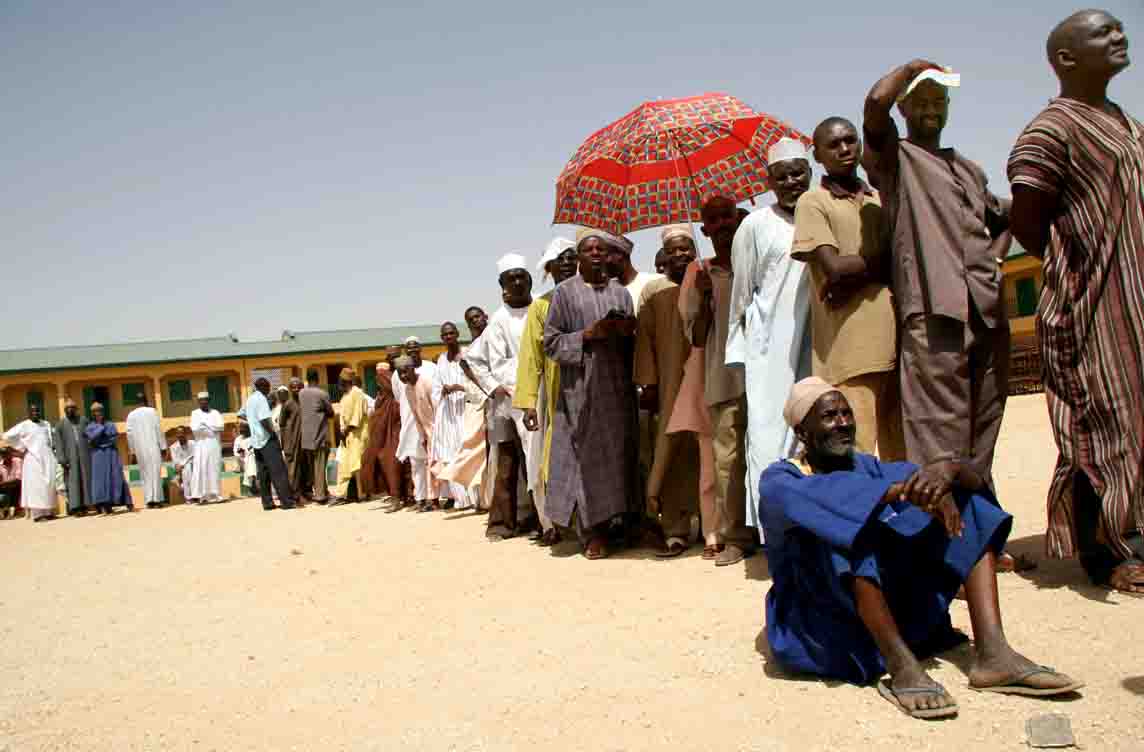
|
|
Real Men Don't Cry – Or Do They?
Men don't cry. Men take risks. Men don't ask for help. Men are strong. Men have many sexual partners. These stereotypes of masculinity are contributing to the spread of HIV throughout the world, experts warned at a recent symposium on men and boys. full article |

|
|
Sexuality Education Approaches: What Would Be Applicable to North of Africa and Middle East?
In this paper, Middle East and North of Africa are not presented from demographic dimension, rather from cultural one, where the most dominant religion is Islam. Consequently, the paper will discuss applicability of sex education approaches from Islamic perspectives but within the Middle East and North of Africa context. full article |

|
|
Masculinities, Maleness And Illusive Pleasure
A consideration of the relationship between masculinities, maleness and pleasure (or lack thereof), reveals three things. A Social Power gap i.e. Male sexual pleasure is influenced by dominance motivation, Female subjection to male pleasure i.e. where the ruling form of masculinity supports the idea of females being subjected to males , there is also support of female sexuality and pleasure to be subservient to male sexual pleasure, Tyranny i.e. Focus on intimacy happiness shows that exclusive attention on attaining sexual; pleasure can be tyrannical full article. full article |
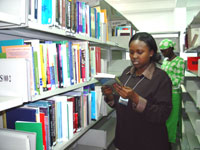
|
|
Doing Research on Sexuality in Africa: Ethical Dilemmas and the Positioning of the Researcher
The process of knowledge production involves a series of steps and is influenced by several factors which impact upon the end result of the research in various ways. When the topic of research is sexuality such conditions and influences become surrounded by a greater number of implications, some with far-reaching consequences. full article |

|
|
Sexual Revelations of Male Inmates: Negotiating Sexual Experiences within the Confines of a Prison
Since 2004, the Themba HIV & AIDS Organisation (a non-profit public benefit organisation in South Africa) has been working in prisons. This work has involved equipping peer educators, all inmates, with the skills and knowledge necessary to educate other inmates about HIV, AIDS, sexually transmitted illnesses, Voluntary Counselling and Testing (VCT), relationships, and dominant cultural norms and traditions which pressurise people into risky sexual behaviours. full article |

|
|
Body Images, Beauty Culture and Language in the Nigeria, African Context
A presentation made at the 2007 Understanding Human Sexuality Seminar, the paper examines perceptions of body and beauty in traditional and contemporary Nigeria African context as reflected in the relevant language and literature and against the background of Western perceptions and formulations. full article |

|
|
Femininity, Sexuality and Culture: Patriarchy and Female Subordination in Zimbabwe
This paper discusses how patriarchy is bred through socialization in the home and the society, and the how these practices lead to control of female sexuality. The paper argues that patriarchy leads to gender inequality and subordination of women to the extent that females do not have control over their sexuality. full article |
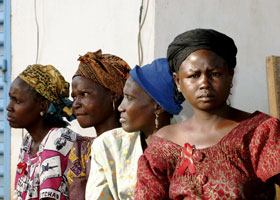
|
|
HIV-positive and Bringing Sexy Back
People tend to think that contracting HIV can spell the end of their sex lives, but HIV-positive Africans of all ages are now being urged to reclaim their sexuality and live healthy, normal lives. "I got this [HIV] through sex, so [I thought] my sexuality was gone and I felt I needed to stop dressing attractively and wait to die," Florence Anam , 28, an information officer at the Kenya Network of Women with AIDS, told IRIN/PlusNews. full article |
|
Regaining Control: Realising Women's Rights to Control Their Own Sexuality, Well-being and Reproductive Health in Africa
These commitments provide a comprehensive package for addressing the challenges of maternal mortality, HIV/AIDS, violence and disease. However, the urgent action needed to address what African Governments have described as a “continental state of emergency” can only be achieved by ensuring firm policy and programme linkages between Sexual and Reproductive Health, HIV/AIDS and Gender Based Violence. full article |

|
|
Sexuality,
African Religio-cultural Traditions and Modernity:
Expanding the Lens
This essay takes
a critical look at the normative as well as
counter normative alternatives to sexuality
both in Africa and in other cultures as they
relate to gender concepts and practices that
address the problem of inequality and state
patriarchy. full article |
Engendering
Sexuality: Human Rights Issues in Reproductive
and Sexual Health
Until quite recently
most Africans, especially in the sub Saharan
region, considered reproductive and sexual rights
as issues for discussion only by 'queers' and
liberal feminist groups. full article |

|
|
Gender
and the Political Economy of Sex Tourism in
Kenya's Coastal Resorts
This paper discusses
gender and the political economy of sex tourism
on the Kenyan coast, its health and socioeconomic
impact, and the government's policy on sex work. full article |

|
|
Muslims’ Perspectives on Key Reproductive and Sexual
Health Issues
Reproductive health
strategies are built around a core belief that
women as full, thinking, feeling personalities,
shaped by the particular social, economic, and
cultural conditions in which each of them lives,
are central to their own reproduction.full article |

|
|
Contradictions
in Constructions of African Masculinities
Rather than the
yearned for comforts, the advent of a democratic
dispensation in South Africa has thrown up many
uncomfortable questions. Focusing on the sex/sexuality/gender
of African males is a deliberate move of disturbing
the taken-for-granted nature of African-ness,
and of such objects as ' African culture', 'African
masculinity', 'African womanhood' and 'African
sexuality'. full article |

|
|
Silence, AIDS and
Sexual Culture in Africa
There is a mystery
at the heart of the AIDS epidemic in Africa that
scholars have explored but have been unable to
explain. The mystery has to do with the denial
that has consistently characterised the AIDS pandemic
in Africa. The silence has to do with that much
used and abused, dearly beloved sacred cow called
culture. full article |
|
|
Sexuality: You Must
Start With Yourself
Sexuality:
a very loaded word. Seemingly, a very personal
matter, yet, in many ways it defines and dictates
much of what goes on in society. Thinking about
sexuality inevitably starts from the subjective
before it moves to the objective, so to understand
how and why we all deal with sexuality we must
start with ourselves.full article |

|
|
Research and Capacity-building
for the Promotion of Sexual Health and Well-being
in the West Africa Region
Despite
three decades of capacity building, there is still
little research on the health problems of the
poor. This is even full article acute regarding sexual
health of people in West Africa. Research is essential
in improving the status of sexual health in any
community. full article |

|
|
Sex Work and the Politics
of Researching Gender and Culture
Sex
work, a critical subject in advancing knowledge
on gender and work, has a troubled position in
the African academy. In 2000, at the center for
Basic Research in Uganda, we sat as a scientific
committee to select abstracts submitted by 160
prospective researchers in the Eastern and Southern
African region on the subject of gender and work.
There was not one single abstract on sex work.
So I asked the committee, "What about sex
work?" full article |

|
|
Demography, Sexuality
and Sexual Behavior Research in Nigeria
When HIV was first reported
in1967, there was very little concern that the
disease will spread to Nigeria. Nevertheless,
there have been apprehensions about the incidence
and prevalence of sexually transmitted disease
long before the advent of HIV/AIDS. full article |

|
|
When Culture Harms
the Girls - The Globalisation of Female Genital
Mutilation
Among
communities that practise FGM, the procedure is
a highly valued ritual, whose purpose is to mark
the transition from childhood to womanhood. In
these traditional societies, FGM represents part
of the rites of passage or initiation ceremonies
intended to impart the skills and information
a woman will need to fulfil her duties as a wife
and mother. full article |

|
|
Decisions Regarding
Harmful Practices and the Role of Husbands
This paper examines the
role of husbands in decisions related to some
of the harmful practices that influence the reproductive
health and quality of life of women in Egypt.
The paper focuses on two main practices, the female
genital cutting and the traditional hand defloration
at the time of wedding. full article |
|
|
|